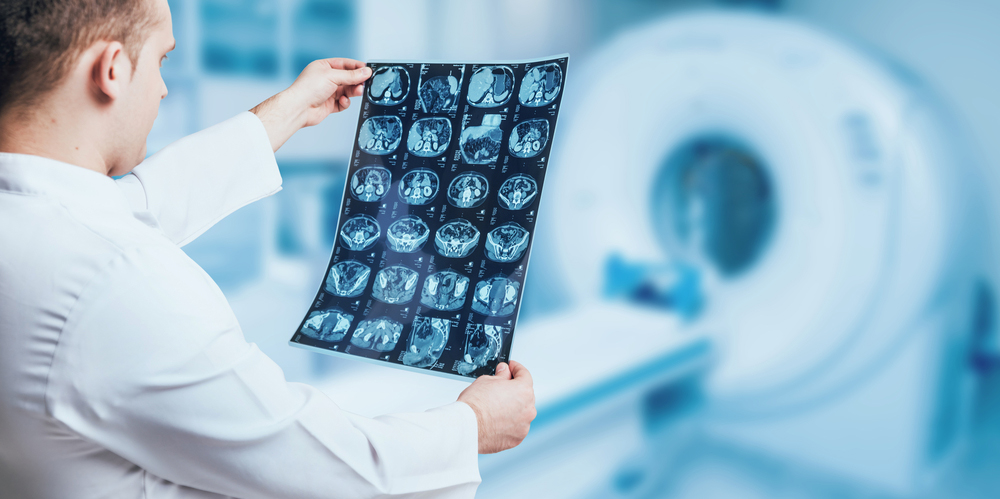Plans to address the growing crisis in cancer diagnosis and treatment – caused by a drop in referrals since the pandemic began earlier this year – were recently revealed in a document leaked to online news site HSJ.
According to the document, NHS England is planning to create at least 150 ‘community diagnostic hubs’ to help clear the ballooning waiting lists that have built up while the health service withdrew care from non-covid patients to focus on coping with the impact of the virus. However, the document contained no details of additional funding to finance this expansion programme.
The need to restore provision of cancer diagnosis to pre-pandemic levels is pressing. With existing screening programmes effectively suspended across the UK – meaning 210,000 fewer people are being scanned each week – the resulting backlog of cancer care has already impacted nearly 2.5m people simply through a lack of urgent referrals.
In England alone, the number of people being referred for diagnostic tests for suspected cancer has dropped by 75 per cent, leaving more than 55,000 people currently waiting for appointments.
Under the new plan, during the approaching winter months the diagnostic hubs will use the existing NHS estate, along with locations provided by the private health sector, but in the longer term – from spring 2021 – it is expected many of the hubs will be set up in non-traditional environments such as high streets and retail parks.
And NHS England (NHSE) expects the hubs to operate for up to 14 hours a day, seven days a week – and at 90 per cent capacity, bettering the current 70 per cent target at acute facilities which need to deep clean equipment.
However, it acknowledges these performance targets may initially be unachievable because of “workforce constraints”, indicating NHSE is possibly all too aware of a national shortage of radiographers and radiologists.
Third sector group Cancer Research has already reported that one in ten diagnostic posts were unfilled when the pandemic began.
Aside from manpower issues, the impact of the new programme may also be blunted by the worsening MRI equipment base of the NHS following years of under-investment.
According to OECD data the UK has one of the lowest number of MRI systems per million population, and the Clinical Imaging Board claims that nearly 30 per cent of the UK’s MRI stock is at least ten years old, with no replacement plans for almost 40 per cent of systems more than seven years old.
Whether these new, community-based diagnostic hubs become permanent fixtures in Britain’s towns and cities is uncertain, but they represent another step in the creeping commercialisation of health provision in the UK, introduced under cover of covid-19.
References in the leaked document to high street and retail park sites are possibly of no real concern – perhaps they’re more about exploiting cheap-to-rent locations during the pandemic-driven economic recession than a push to link-up with high-profile brand sponsors – but the well-established presence of private sector interests operating in the diagnostic and pathology arena suggests there may be rich pickings on offer somewhere in the hub programme, if only until the backlog is cleared.
Existing research by the NHS Support Federation clearly demonstrates that the privatisation of diagnostic and pathology services is well underway, with a number of companies already holding large long-term contracts with the NHS. Indeed, every aspect of diagnosis for the health service is now carried out somewhere in the UK by a private contractor.
In fact the oldest partnership between the NHS and a private company in diagnostics and pathology is Viapath, a joint venture between two major hospital trusts (Guy’s and St Thomas’, and King’s College Hospital) and multinational outsourcing firm Serco, no stranger to negative press coverage in recent years.
So when, in late July (before the leaked document published by HSJ), NHSE chief executive Sir Simon Stevens pledged to restore full operation of all cancer services, it was perhaps no surprise that he stressed this work would be overseen by a taskforce of “major patient charities and other key stakeholders” who would ensure sufficient diagnostic capacity, “including through the use of independent sector facilities”.
Dear Reader,
If you like our content please support our campaigning journalism to protect health care for all.
Our goal is to inform people, hold our politicians to account and help to build change through evidence based ideas.
Everyone should have access to comprehensive healthcare, but our NHS needs support. You can help us to continue to counter bad policy, battle neglect of the NHS and correct dangerous mis-infomation.
Supporters of the NHS are crucial in sustaining our health service and with your help we will be able to engage more people in securing its future.
Please donate to help support our campaigning NHS research and journalism.


